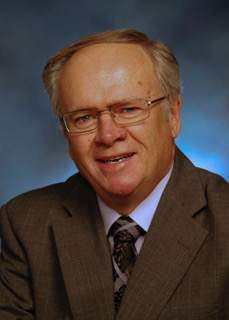Religious Liberty Only for Some?
by Robert Crux | 13 February 2024 |
Imagine what the United States would look like if we allowed religious extremists or an extremist political group to violate a person’s civil rights based on their beliefs! The nation would soon descend into anarchy and hate. It would cease to be a constitutional democracy.
Some religious liberty pundits argue that is exactly what is happening in America today. Religious freedom is at significant risk from a growing consensus that the establishment clause in the First Amendment—“Congress shall make no law respecting an establishment of religion, or prohibiting the free exercise thereof”—is no longer relevant.
There is a movement afoot to make the protection of religious freedom selective and political rather than consistent and universal. The search is on for a rationale for ignoring and circumventing laws and regulations under the banner of the Christian faith, and defeating the laws that protect a pluralistic democracy. such as nondiscrimination protections for LGBTQI+ people, women, and religious minorities.
Today, conflicts over religious liberty most often arise from the Christian nationalism movement, which is underpinned by the anti-democratic notion that America is a nation by and for Christians alone. Deeply ingrained in Christian nationalism is opposition to the principle of the separation of church and state that undergirds the establishment clause. This has already led to discrimination and even violence against religious minorities and the nonreligious.
Selective discrimination
Every American citizen has a right to his or her own religious beliefs. However, there is no constitutional right to use our religion to discriminate against, and or impose our beliefs upon, those who do not share them. Religion should never be used as an excuse to mistreat others.
Further, the courts should not have to decide (again) whether religion gives someone the right to discriminate in secular settings.
The idea that institutions and individuals can discriminate in the name of religion is not new. In the 1960s, objections to laws requiring integration in restaurants were raised on the belief that God wanted the races to be separate. Religiously affiliated universities and colleges banned interracial dating on their campuses.
The manipulative use of religion in regard to race did not prevail then, and it should not prevail today. Yet Christian nationalists haven’t given up. They advocate for legislation under which only a select group of Christians can be the full benefactors of religious liberty. The Americans United for Separation of Church and State says that
Christian nationalists support religion-based discrimination. Most other Americans don’t.
This should be cause for concern for all Christians who believe in the biblical principle that all people are equal before God and in Christ: “God does not show favoritism” (Romans 2:11).
Marci A. Hamilton, a columnist for Verdict (Justia) writes
Too many American citizens do not seem to understand what the right-wing religious powers have been concocting for decades, and still have a dangerous tendency to presume that if something is for religion it must be good for everyone. History shows us that that is just malarkey. Time for Americans to push back against those who are self-righteously demanding a right to impose their faith on the rest of us, and to return to the days of a First Amendment that partakes in common sense, celebrates the common good, and nurtures love and kindness toward all.
A Christian judiciary?
One of our biggest fears should be that we are slowly moving towards a Christian nationalist judiciary. A 2020 report prepared by the Freedom From Religion Foundation
exposes the Christian Nationalist takeover of the federal courts and the damage this is causing to the separation of church and state.
The report says that
Over the Trump administration’s four years, the federal courts have been taken over by ultraconservative judges who have radical views on religious liberty, and who are rapidly redefining the First Amendment in ways that expand Christian privilege and erode the wall of separation between state and church.
In other words, a de facto government-sponsored Christianity in America appears to be reflected in decisions by courts with ultra-conservative Christian judges who are sympathetic to the Christian nationalist movement. This is one of the ways in which government-sponsored Christianity has advanced the Christian nationalist belief that the only true Americans are Christian Americans. All other citizens need not be accorded the same respect, benefits, or rights.
Religious violence
It is not a secret that there is a link between religious extremism and terrorism. Religious extremists murder because they embrace theologies that endorse violence in the service to God. History is replete with stories of Christians murdering other Christians over doctrinal matters—including some at the edges of our own church—because the victims were viewed as enemies of God. Some were willing to sacrifice their own lives, expecting immediate afterlife rewards in return for “martyrdom.”
Arthur Dobrin in his Psychology Today article writes
Christians waged crusades under the banner of the cross. Not only did they kill Muslims, they also murdered other Christians over doctrinal matters and unleashed centuries of systematic anti-Semitism. Later, Pilgrims and Puritans, who fled Europe because of religious persecution, established violent and intolerant colonies in America, acting barbarically in the name of Christian theology.
Today Christian nationalism has co-opted Christian language and imagery to advance a gospel of power instead of a gospel of love. Andrew Whitehead, writing for Time magazine, says:
Comfort with violence is a natural byproduct of Christian nationalism’s obsession with power. At times, the only way to get people to do what they should—as God commanded—is with the use (or threat) of force.
Some followers of Christian nationalism have been duped into believing this movement is a legitimate branch of Christianity. Instead, it is a political ideology that uses the language of Christianity to hide its attack on religious freedom.
Equal in Christ
How does destroying the uniform and consistent application of religious liberty align with the biblical mandate “that we are all equal in Christ” (Romans 2:11)? With the rise of Christian nationalism, large sectors of the Christian community have gladly embraced political movements that have been co-opted by evangelical Christianity. Political operators have used misinformation and propaganda to inflame the biases and bigotries of white Christians.
Those living outside of evangelicalism are correctly puzzled by how people who profess to follow Jesus can be so loyal to a partisan, unChristlike ideology that tolerates hatred, discrimination, and violence. How can professed love for Christ and his teachings on equality seem so right, and yet turn out so wrong for so many Christians? Religious liberty is supposed to mitigate our differences, not reinforce them.
Christian nationalism seeks to undermine the ability of people to live consistently with their religious beliefs and identity. The government should never penalize people for being true to their faith—even if it is a faith with which we profoundly disagree.
Who will be the voice of the vulnerable and the marginalized, as Jesus was in his time? Just as the Roman Empire co-opted the temple state of Jesus’ time, the growing voice of Christian nationalism seeks to incorporate anti-democratic notions of white supremacy, nativism, patriarchy, and authoritarianism into American society.
Jesus challenged the domain of human power and was crushed. But when he rose to be Lord of all, he set in motion the greatest influence on human hearts of all time: that of peace, courage, and religious liberty.
 Robert D. Crux, Ed.S, worked as a teacher, principal, and superintendent of schools over a period of 35 years in Adventist education before retiring in 2016 to Lawton, Michigan, where he enjoys writing, reading, biking, model railroading, and, most of all, his grandchildren.
Robert D. Crux, Ed.S, worked as a teacher, principal, and superintendent of schools over a period of 35 years in Adventist education before retiring in 2016 to Lawton, Michigan, where he enjoys writing, reading, biking, model railroading, and, most of all, his grandchildren.




